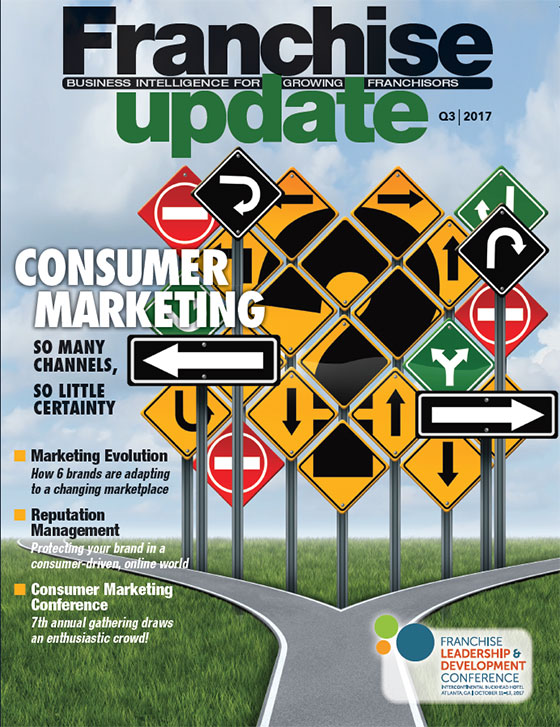CEOs: Listen Up! How to Respond to Customer Complaints

Dealing with customer complaints that make it to senior executives is a critically important strategy, one that most companies fail miserably at in three ways:
- Not creating a CEO communication strategy nor giving it the attention it deserves when a customer does make the effort to contact the head of the company.
- Making it impossible for customers to ever be able to get in touch with the CEO/president.
- And too often, when someone does get in touch with the CEO, the CEO makes it worse. (See PwC, Lululemon, Spirit Airlines, and United Airlines.)
Are you accessible?
It is incomprehensible to me how many corporate offices and senior management teams are totally inaccessible--or who do not handle it well when dealing with customers. Service Management Group did a study and found that only 35 percent of customers were highly satisfied with the service recovery of senior leadership, who too often make excuses, try to spin the situation, and insult customers by not validating their complaint.
However, there are exceptions. Umpqua Bank, based in Portland, Oregon, is aggressive at inviting customer feedback. If you have a question or comment and want to take it right to the top, every location has a phone in the lobby with a sign that reads, "Let's talk." Pick it up and you get CEO Ray Davis's office. You can pick up the phone and tell him what you think the bank is doing right, and what you think it can do better. Or you can ask him anything you'd like.
Another great example of an owner who remains accessible is Mark Cuban, the billionaire owner of the NBA's Dallas Mavericks. Cuban discusses his customer service philosophy in a blog titled "Success and Motivation - Connecting to your Customers." In it, Cuban shares two of his favorite quotes: 1) "Treat your customers as if they own you. Because they do."; and 2) "You have to re-earn your customers' business every day." Cuban also describes his unique perspective on being accessible:
It's interesting to watch different CEOs of different companies and how they deal with the issue of making customers happy. You can tell the ones that don't trust their products or services.... They protect themselves from any possible interactions, whether direct, phone, or email, by having secretaries filter everything, and they respond with form letters or assistants, if at all.
I don't know how they do it. I make my email available to everyone and anyone. Not only that, and more importantly, I make sure that all the customer service emails get forwarded to me. If someone is complaining, I want to know what about, and I want to get it fixed quickly. The best focus groups are your customers telling you what they think. No company is perfect, but the CEO who doesn't listen to direct feedback from customers will not take the company as far as it can go.
How refreshing! And what a great role model Cuban is for all senior management. Get out from behind your desk and talk--and listen--to some customers!
Make it easy to complain
Think about the last several times you had a disappointing customer experience. Or when you left a business frustrated. Or hung up the phone more stressed than before you called. Did you tell anyone at the company? If you are like most people, you didn't bother to waste your time sharing your displeasure with anyone at the business that disappointed you. Why? Because most customers don't think anyone at the business really cares, wants to hear it, or thinks you are trying to get away with something. So why would a customer want to waste their time? How often does this play out in your business: customers leaving unhappy without letting anyone know?
If we are not making it easy for our customers to give feedback, then it is happening to us more than any of us realize. Our customers have better things to do with their time than hunt us down and complain and then feel that it didn't make a difference.
There are several ways to give permission to customers to communicate with us. I am not talking about customer measurement devices that ask customers their level of satisfaction and how likely they are to refer. While that is vitally important, I am referring to something totally different. I'm talking about not only giving your customers permission to communicate easily in a nonthreatening way, but also asking> for their advice and feedback, positive and negative. Few companies ask their customers for praise, and lose the opportunity to celebrate and perpetuate outstanding performance. However, even fewer companies have the courage to ask their customers for feedback if their experience was below what they were expecting.
It is so simple to ask customers on everything: invoices, orders, emails, at checkout, on the receipt, on the website, even in restrooms. Here are some examples of what companies have used:
- "Please tell us about your experience. It is very important for us to know how we are doing."
- "We want your advice on how we can be better."
- "Did we hit the mark today? Tell us. Did we miss? Tell us, please!"
- "Was someone a hero for you today? We want to recognize them."
- "Were we the best part of your day? If you can't answer yes, we need to know why."
John R. DiJulius III is the author of The Customer Service Revolution and president of The DiJulius Group, a customer service consulting firm whose clients include Starbucks, Chick-fil-A, The Ritz-Carlton, Nestle, PwC, Lexus, and many more. Email him at [email protected].
Share this Feature
Recommended Reading:
FRANCHISE TOPICS
- Multi-Unit Franchising
- Get Started in Franchising
- Franchise Growth
- Franchise Operations
- Open New Units
- Franchise Leadership
- Franchise Marketing
- Technology
- Franchise Law
- Franchise Awards
- Franchise Rankings
- Franchise Trends
- Franchise Development
- Featured Franchise Stories
FEATURED IN

Franchise Update Magazine: Issue 3, 2017








 The franchise listed above are not related to or endorsed by Franchise Update or Franchise Update Media Group. We are not engaged in, supporting, or endorsing any specific franchise, business opportunity, company or individual. No statement in this site is to be construed as a recommendation. We encourage prospective franchise buyers to perform extensive due diligence when considering a franchise opportunity.
The franchise listed above are not related to or endorsed by Franchise Update or Franchise Update Media Group. We are not engaged in, supporting, or endorsing any specific franchise, business opportunity, company or individual. No statement in this site is to be construed as a recommendation. We encourage prospective franchise buyers to perform extensive due diligence when considering a franchise opportunity.